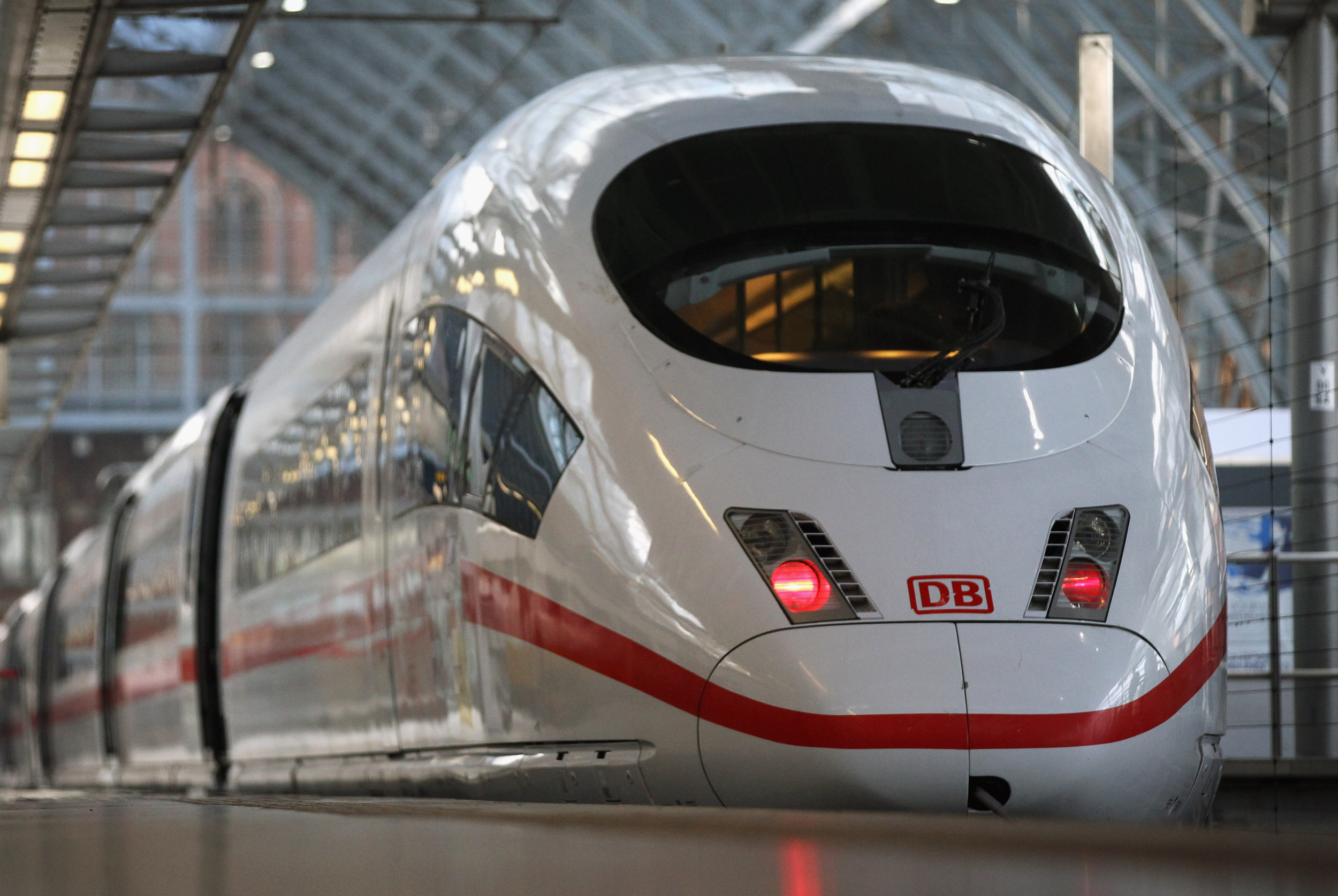A plurality of eligible U.S. voters support the construction of a high-speed rail line linking San Francisco to Los Angeles even when told the estimated cost has soared to $128 billion, up from an initial estimate of $33 billion, according to a survey conducted exclusively for Newsweek.
The Redfield & Wilton Strategies poll found 40 percent of voters think the project is still “worth it” after being told the cost, against 33 percent who disagree, and 27 percent who are unsure.
Recent years have seen a surge in interest about high-speed rail across the U.S., with a number of schemes either proposed or under construction. The California High-Speed Rail Authority is currently working on a line intended to link San Franciso and Los Angeles by the time the latter city hosts the Olympics in 2028, after which they plan to extend it to Sacramento and San Diego.
Currently 171 miles of rail are under construction with environmental clearance having been granted for another 422 miles. Separately in April work began to build a new 218-mile high speed railway linking Las Vegas in Nevada to Cucamonga, in southern California.
Redfield & Wilton Strategies surveyed 1,500 eligible voters in the U.S. online on June 11 and 12, with the sample weighed by a number of factors including age, gender and 2020 presidential election voting record.
Respondents were asked: “High-speed rail projects are expensive. Phase 1 of California’s high-speed rail project, taking travelers from San Francisco to Los Angeles, was originally approved in 2008, when it was anticipated to be operational by 2020 and cost $33 billion.
“Four years past the deadline, the project remains uncompleted, and the estimated cost is now $128 billion. If a high-speed rail line is eventually constructed between San Francisco and Los Angeles, do you think a projected cost of $128 billion would have been worth it?”
In response to this question 40 percent said “yes,” 33 percent “no” and 27 percent “don’t know.”
Newsweek contacted the California High-Speed Rail Authority press office for comment by email on Wednesday outside of usual business hours.
Dan Kitwood/GETTY
According to a news release published on May 29 by the Senate Committee on Commerce, Science and Transportation the plan for the San Francisco to Los Angeles line was “intended to cost California taxpayers a total of $33 billion and be completed four years ago.” However, with little to show for it, the cost of the project has reached nearly $130 billion, and there is no discernible date of completion.
Two prominent Republicans raised these concerns in a joint letter to Transport Secretary Pete Buttigieg.
Senator Ted Cruz, a ranking member on the Senate committee, and House Transportation and Infrastructure Committee Chair Sam Graves wrote in May: “Voters were promised that the California High-Speed Rail project would cost the state $33 billion and be completed by 2020. Fifteen years later, the California High-Speed Rail project has become one of the most troubled ‘megaprojects’ in the nation.
“The California High-Speed Rail Authority (CHSRA) still has not completed a single segment of the system, the total estimated cost has ballooned to $128 billion and counting, and there is no expected completion date.”
But the Redfield & Wilton Strategies survey found eligible American voters overwhelmingly support the construction on new high-speed railways across the U.S.
After being told about proposed high-speed lines in California and Texas eligible voters were asked: “To what extend, if at all, would you support or oppose the construction of more high-speed rail lines in the United States?”
In response 28 percent answered “strongly support” with a further 32 percent for “support,” against just three percent for “strongly oppose” and four percent for oppose.” Another 25 percent said they “neither support nor oppose” the statement whilst eight percent answered “don’t know.”
Uncommon Knowledge
Newsweek is committed to challenging conventional wisdom and finding connections in the search for common ground.
Newsweek is committed to challenging conventional wisdom and finding connections in the search for common ground.
